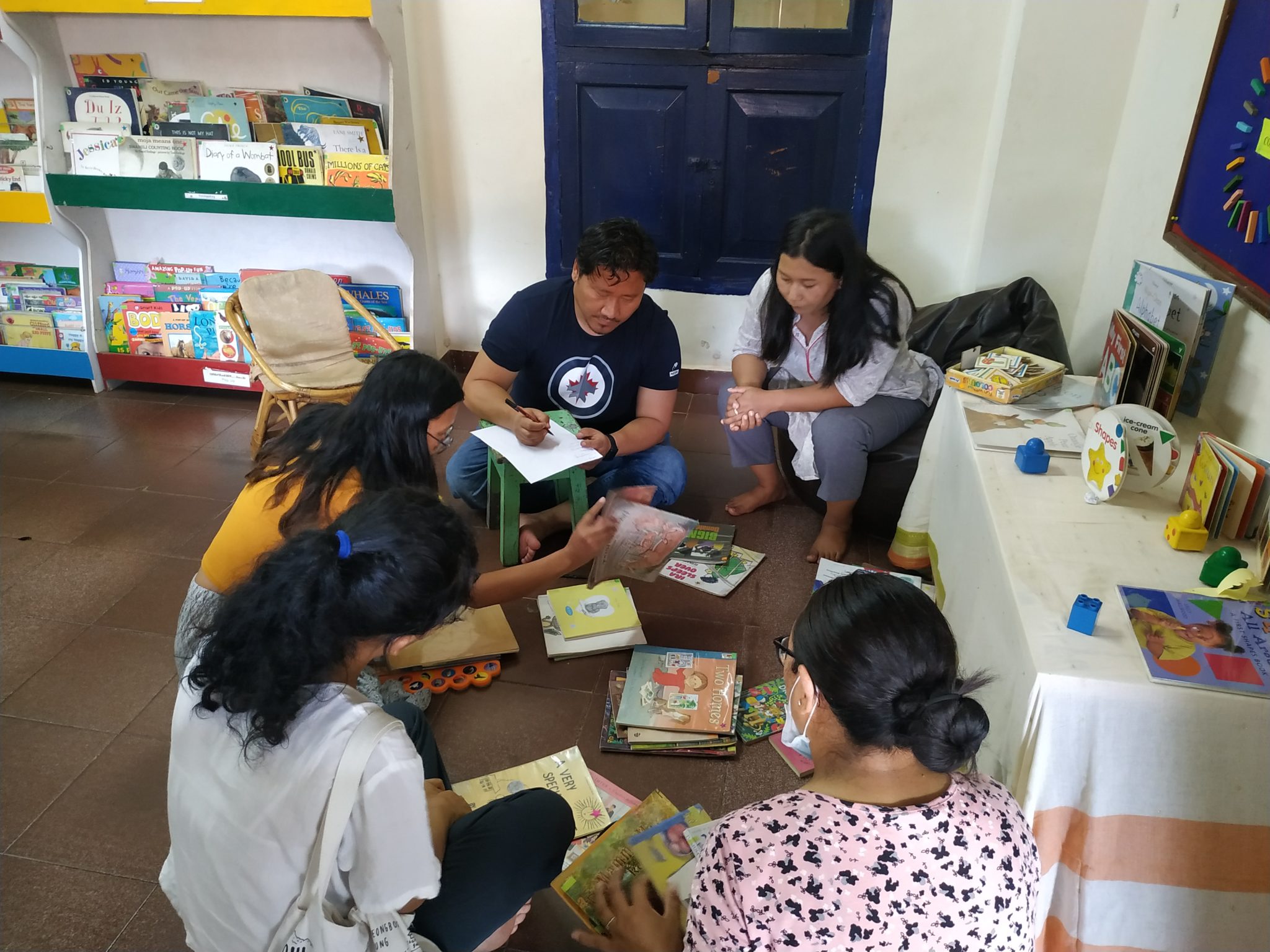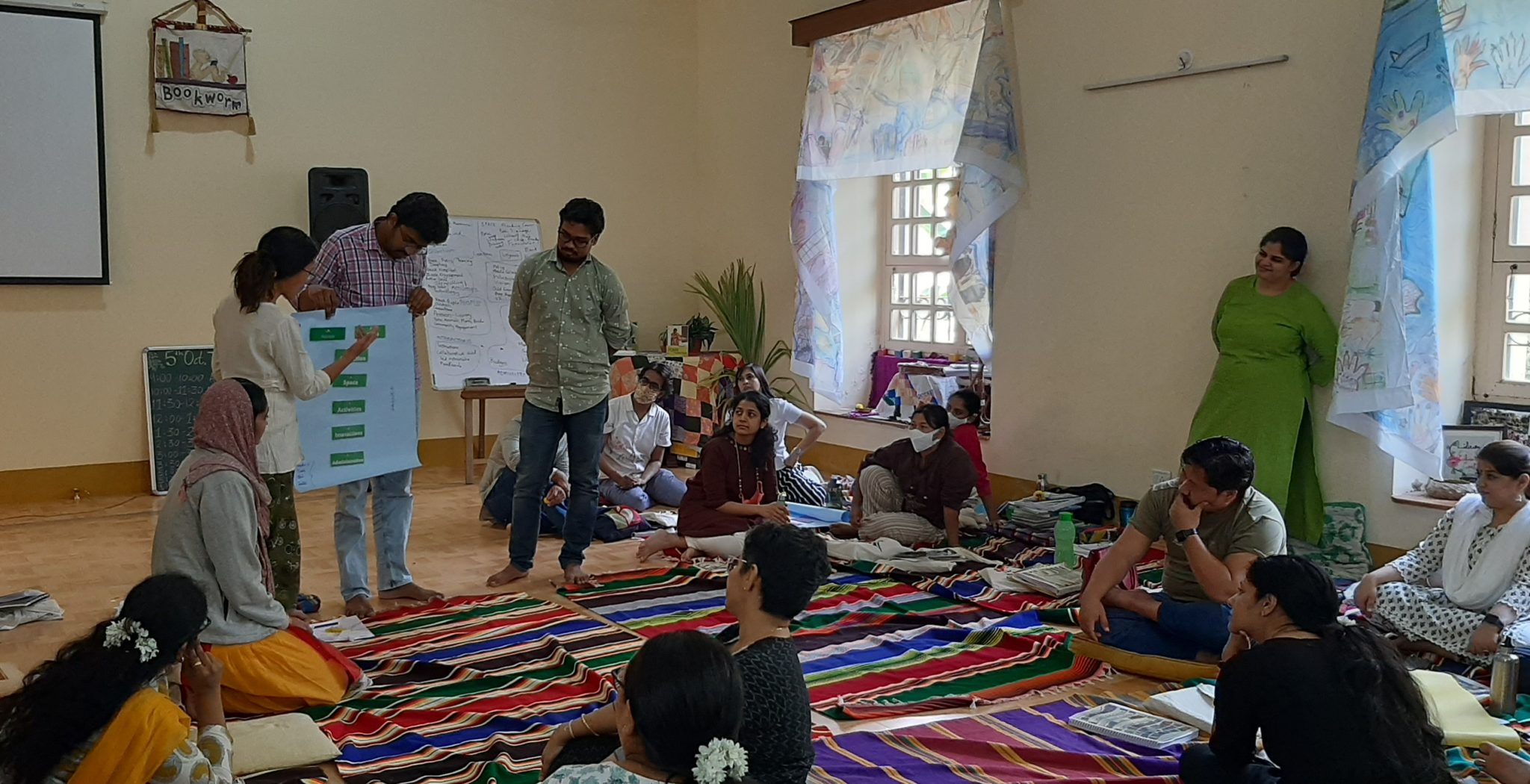Written by Tenzin Panten and Pema Dolma, LEC 2021
INTRODUCTION
Shatsa was founded by a group of like-minded Tibetan youths of Ladakh. We commenced our core project in May 2019 and have been working vigorously to develop a love for reading among the children. We commenced this journey primarily in the view of reading poverty in our community. Our prime motive to form Shatsa was the inaccessibility of books while growing up ourselves. But as we evolved as an adult, we realized the pleasure in reading itself so we wanted the children of our community to feel this joy of reading. After having this organization formed where the core members do not have any kind of library education so we sensed an urgency to enroll in the LEC. When we first had to decide on who should be applying for this course, we decided we both will as each person responds differently at different stages of learning. We both encountered Bookworm at a different time and space yet our experiences remained intact and full of wonders. LEC bridged our experiences, our learning, our librarianship and our sisterhood.
FIRST CONTACT PERIOD
The first day of contact was refreshing indeed. The humid air and our traditional attire hugging tightly, we were in awe when we entered the hall for the contact period. And when we were asked to light the lamp, it gave us a sense of belonging to one another and the place to be our home for a week. We stood to collect our compendiums, stitching set, boxes and journal. As we were collecting the necessaries, we couldn’t stop admiring. We were telling each other “རྙིང་རྗེ་ལ།” meaning “How Beautiful” at every point. The introductory play was the highlight of how library people should be. As the course moved forward and the days to leave the centre were nearing, we could locate ourselves within a community of library educators who are all dedicated to be the change.
BETWEEN CONTACTS
There was also a lot of moment of realization of how vision, people, space, interactions, activities, administrations and funds each play a vital role in making a library work which was pointed out during the last day of the contact period. We were rejuvenated, although we were the same person yet something has changed us. The LEC contact period has made us into a person who questions why. Many around us didn’t like the idea very much yet we remained positive knowing that one day they will realize the essence of the WHY. The change was a ripple effect as we questioned why, our ways of dealing with misunderstandings with each other changed, our ways of choosing books for our collection changed, our perspectives changed.
Before leaving Delhi, we thought of visiting as many publishers as possible nevertheless we got stuck in one publishing house the whole day curating mindfully without lunch. We were so consumed in the process that time took over us. We reminded each other of how library work is interwoven and shared a “how true” nod with each other followed only by the clicking sound of the computer at the desk.
We continued our work at the Library doing what we thought we lacked among the various elements of the library which is our COLLECTION. We began our work of digitalizing our collections which would inform us of how many books we have. As we analyzed each book, we also got to classify our books into genre-based; theme-based and so on with a constant reference from the compendium of course. After every Virtual Session, we would realize that it is never enough and once we realised that we try to discuss further on the topics discussed within the virtual sessions and try to find ourselves within these ideas. The ideas of how reading the world and reading the word are interlinked, how reading with and reading against the text could open new things, how a vibrant library should be, how the vision and values of the library and the library educator shapes the library work.
The major impact that followed the virtual sessions was; detailed discussions on our Vision, asking ourselves what our values are if we had values added to our vision and how we need to modify our vision adding our collective value of Empathy. The relationship between a mentee and a mentor kept blossoming through various other sessions and mediums. However occupied they were, we were able to get a response and sometimes they would reach out to us making us know their presence from afar. Assignments and discussion forums activated our thinking selves.
Before LEC, we were the kind of library people who talk more, listen less and lack patience; after LEC we were transformed into someone who believes more in observing rather than teaching, who believes in having patience for the children who visits the library just to be there and into someone who believes in asking questions to the children. LEC also made us realize that it is of utmost importance to ask ourselves why we are doing what we are doing. Doing this gave us vivid approaches to be followed in our library. This worked not only in our library work but also did wonders in our personal experiences as Tibetan Activists. 
We believe LEC made us PAUSE and REFLECT and discuss further how we are doing, what we are doing. In the discourse of this course, it also made us realize that libraries are in fact interwoven; a social entity. We have been collaborating with Manjushiri Education Service yet we realized it is crucial to collaborate with other library educators or teachers as well. LEC made us commit to more of library meetings with our members and discuss books, be aware and informed of our collection.
As this course moves forward, each day is new learning with new ideas. Sometimes we feel we are unable to keep up with the ideas that are being shared at the very moment but in our own good time, we align ourselves within the idea itself and work on it. The only thing that has been a barrier for us in the beginning of this course was our inability to read critically but this has also changed in the discourse of LEC.
Thank you for these alluring learning experiences.

